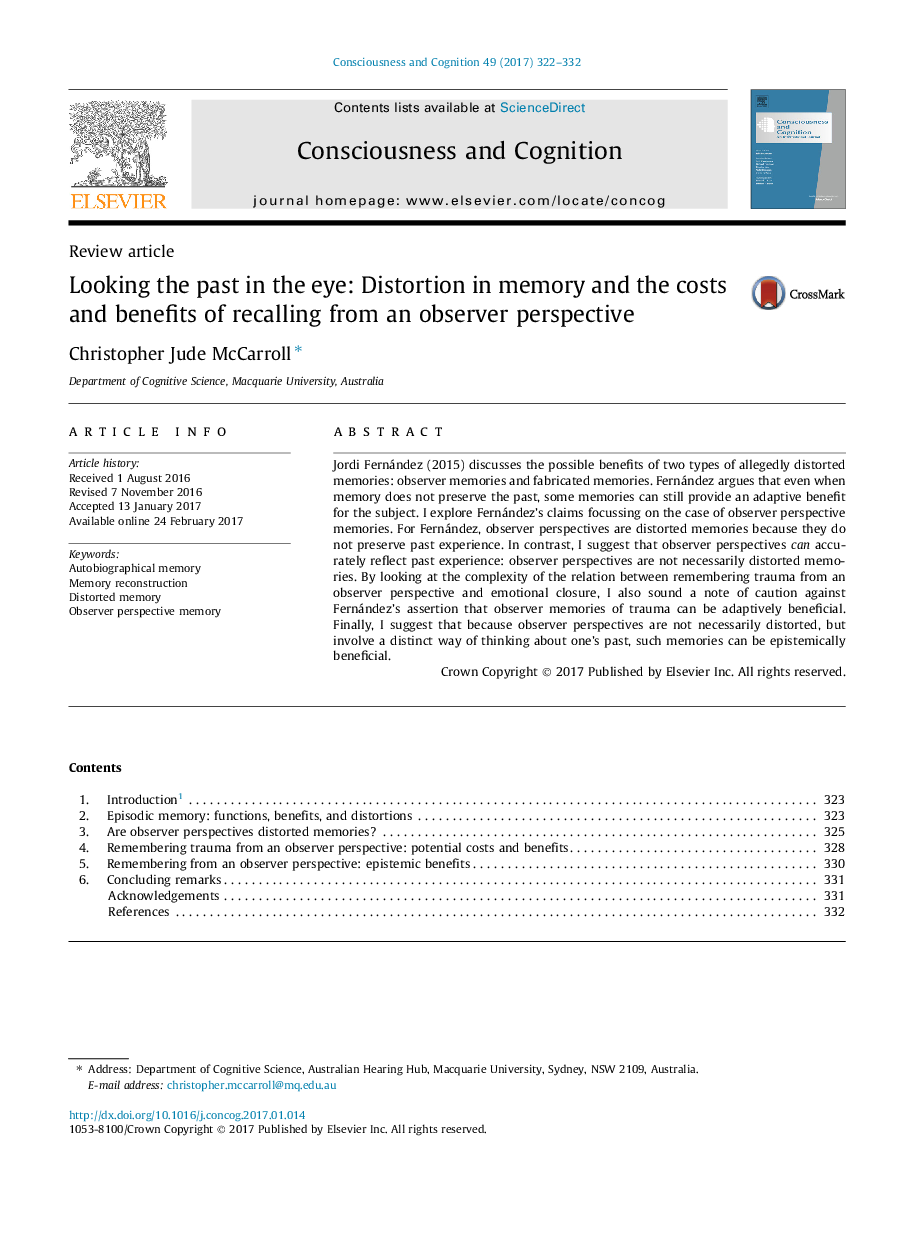| Article ID | Journal | Published Year | Pages | File Type |
|---|---|---|---|---|
| 5041885 | Consciousness and Cognition | 2017 | 11 Pages |
â¢Observer perspectives are not (necessarily) distorted memories.â¢The relation between memories of trauma, visual perspective in memory, and emotional closure is complex.â¢Observer perspectives can be epistemically beneficial for the subject.
Jordi Fernández (2015) discusses the possible benefits of two types of allegedly distorted memories: observer memories and fabricated memories. Fernández argues that even when memory does not preserve the past, some memories can still provide an adaptive benefit for the subject. I explore Fernández's claims focussing on the case of observer perspective memories. For Fernández, observer perspectives are distorted memories because they do not preserve past experience. In contrast, I suggest that observer perspectives can accurately reflect past experience: observer perspectives are not necessarily distorted memories. By looking at the complexity of the relation between remembering trauma from an observer perspective and emotional closure, I also sound a note of caution against Fernández's assertion that observer memories of trauma can be adaptively beneficial. Finally, I suggest that because observer perspectives are not necessarily distorted, but involve a distinct way of thinking about one's past, such memories can be epistemically beneficial.
